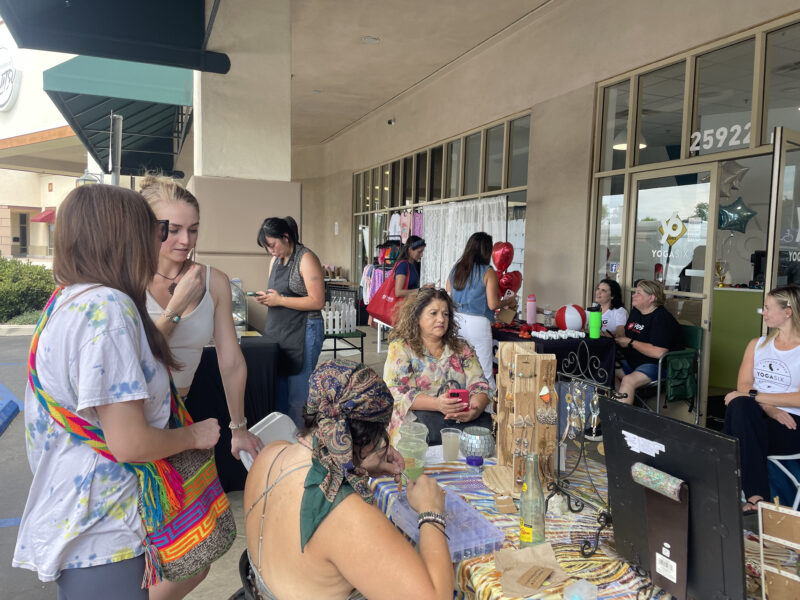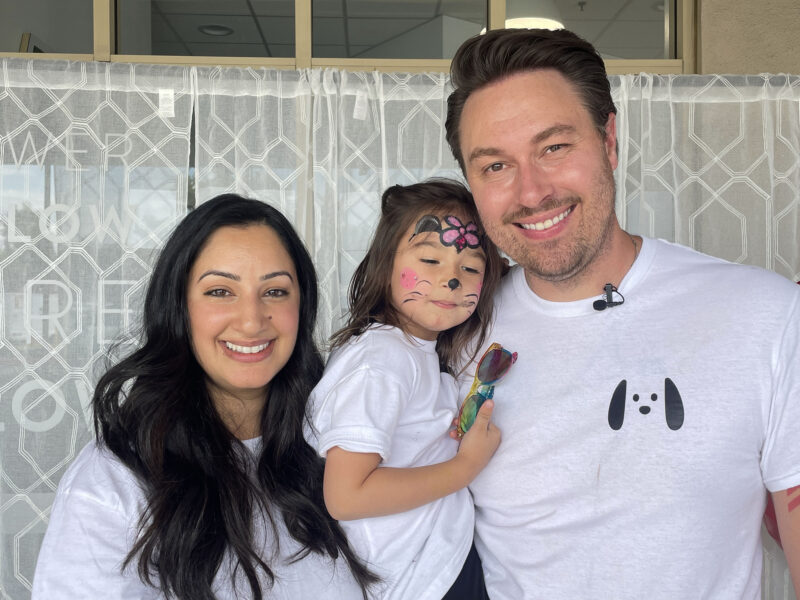Rashi and Eric Wiese love dogs. Rashi said she grew up with no pets and Eric had always had an affinity for animals.
The Paws N’ Flow Dog Adoption event had vendors ranging from face painting to a coffee shop to bandanas for animals, a hot yoga class and dogs to adopt at YogaSix on Saturday afternoon.
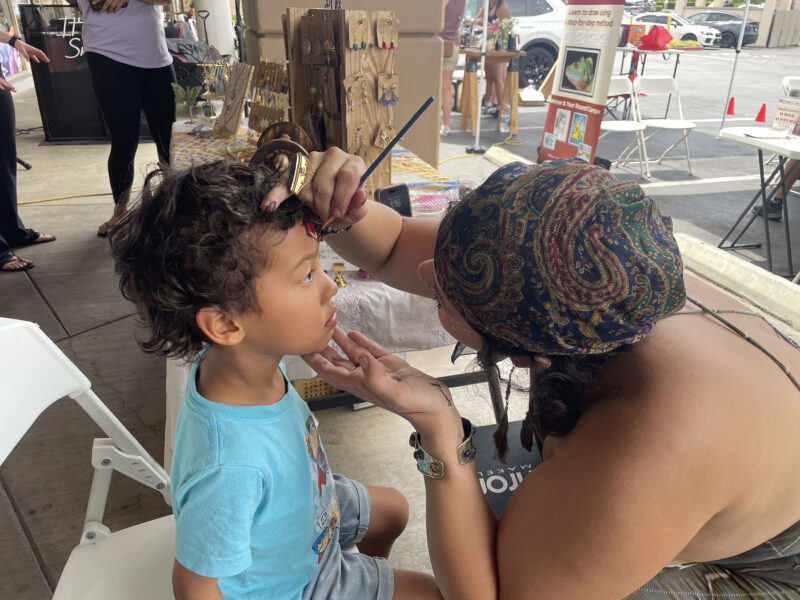
Rashi’s background was in social work and technology before going into the dog business. Rashi met her husband, Eric, who was a veterinary behavior consultant, and had his rescued German Shepard Archy and his own dog training practice called Happy Puppy dog training.
Eric’s journey began when he was 9 years old with doing case studies on animals in St. Louis. When he turned 24, he moved to California and got field work certification with the International Association of Animal Behavior Consultants and American Kennel Club.
“He rescued (Archy) out of a very unfortunate circumstance from a dog fighting ring in downtown L.A. and he was able to earn that dog’s trust, and that changed my life, being able to see a dog go through so much trauma and be able to trust a human, and become so loving and attached,” Rashi said.
They got married and Rashi decided to leave her line of work to start a business with Eric in 2016, which was Happy Puppy L.A., a boarding and training business, and soon after that, the “WRARE Foundation” was born in 2017.
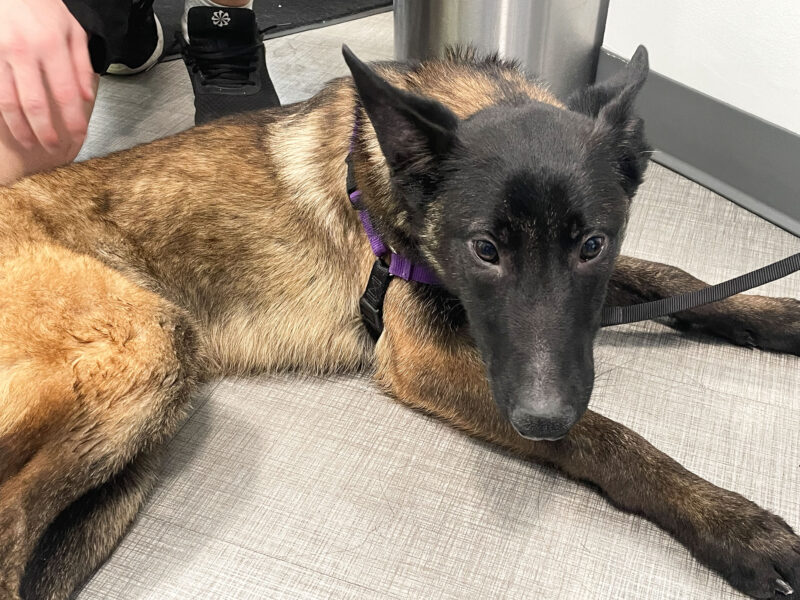
The WRARE Foundation is an acronym for Winston, Rupert, Archy, Estelle and Enzo, their “O.G. dogs,” as Rashi said. However, Estelle and Archy have since died. Now, they have nine dogs: Ella, Rupert, Winston, Arthur, Benji, Enzo, Emmy, Adele and Avocado, Rashi said, adding that her daughter, Asara, named Avocado.
Rashi said that all the dogs were adopted and play on their family’s 10-acre ranch.
“So, we decided to start our own organization dedicated to dogs in need because we’ve seen how much they’ve changed our lives and we want to be able to do the same, especially here in the L.A. area,” Rashi said. “Because there are so many dogs that need homes that we feel it’s almost our responsibility and our purpose here, is to help them find homes and help them through those traumatic situations that they may have faced because there are ways to rehabilitate them, especially in a positive way.”
The WRARE Foundation’s approach to dog adoption is different because they emphasize the home-like environment for the dogs and more humane ways to work with them.
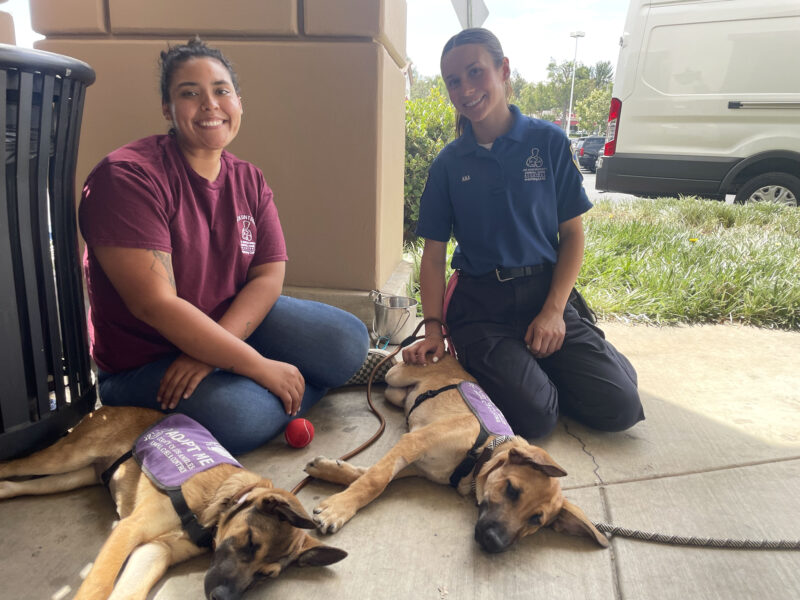
“We do things very differently at our company because we do play groups and we create a home-like environment for the dogs. So, we want to make sure they’re not stressed. So, we create play groups of two or three based on temperament and we rotate them throughout the day,” Rashi said. “So, it’s like they’re at home. They rest, they go out, they rest, they watch TV, they hang out on the couch with us. And so, it’s a much calmer environment for them and they do better when their pet parents are out of town.”
Rashi added that Eric and she do not use the word ownership when it comes to their dogs, they use the term “pet parents.”
“We don’t feel like we own our dogs — they are a part of our family,” Rashi said.
WRARE is fear-free certified as well, which means that they do not use any sort of training methods that can psychologically or physically intimidate dogs, Eric said.
Rashi said that it takes dogs about six months to a year to acclimate to a new environment when they come from the shelter.
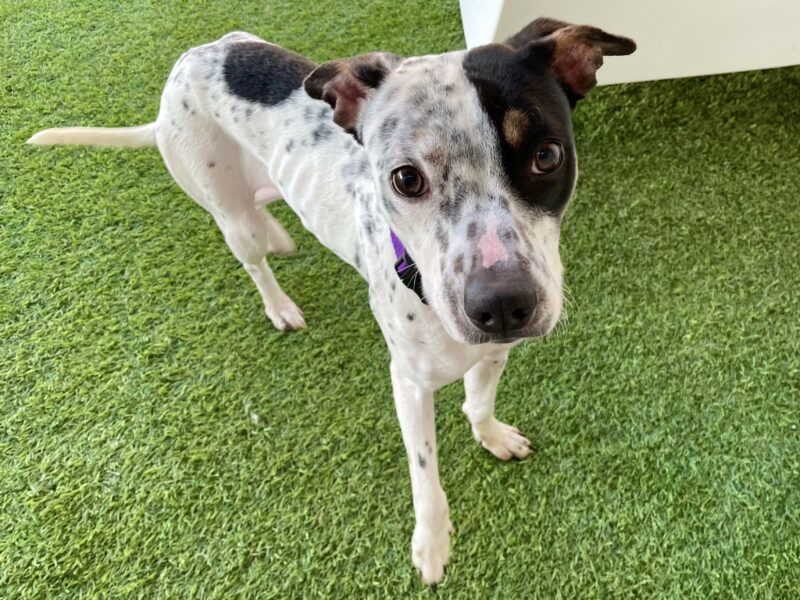
“The temperament you might see at the shelter is not necessarily how they are. A lot of the behavior issues that are described, that don’t allow the dog to get adopted, are due to fear and stress,” Rashi said.
She added that these dogs are added to a Fear, Anxiety, Stress list (FAS list) and if they stay at the shelter, they become more at risk of being euthanized.
“So, those are the dogs that we try to get out as soon as possible, bring them to our space, let them decompress, let them learn how to trust a human companion or another dog, and we work with them, and it usually takes us about three months to rehabilitate a dog,” Rashi said.
Rashi added that the reason she and Eric took this approach to dog training is because they did not feel comfortable with the standard care for dogs.
“And so, we try to stay up to date in science-based methods. And it’s constantly changing on a year-to-year basis. We’re learning more and more about how dogs interact with humans and what the best way of working with them is where you’re removing that psychological physical intimidation,” Eric said. “So, they’re just not a verbal species, and we are. And so, we have to figure out a way to communicate with them.”
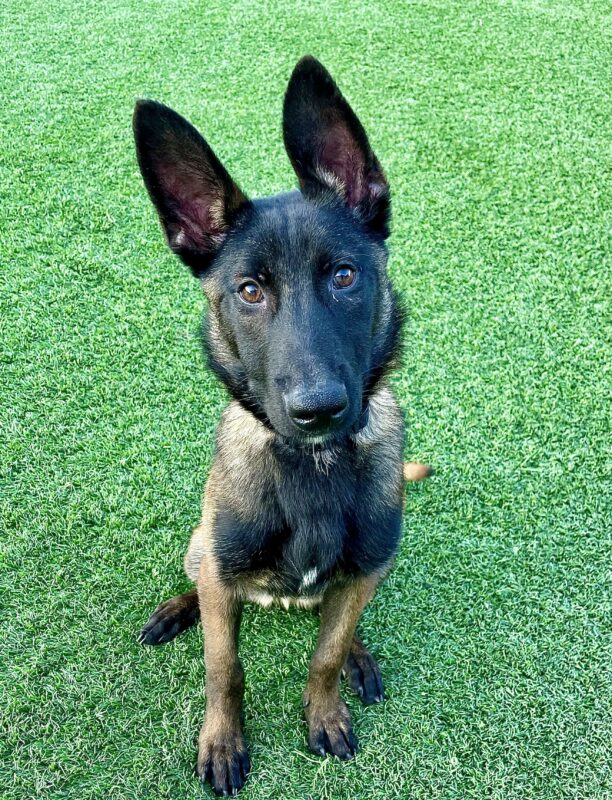
Eric said that with all the rescues they have done so far, the approach is about 80% successful.
The other 20% is due to things not working between the dog and the person, Eric said.
When asked what the process looks like for Rashi and Eric, he said that it’s a day-to-day thing. They start with decompression, then build that trust with the dog and then start to train them.
“And then once we get a dog to trust us, we then actively start to train. So, whether it is socialization, environmental acclimation, so getting them outside of our space, getting them into an environment like we are in now, so more of a public environment where they see more foot traffic, working our way up to busier environments like outdoor malls,” Eric said.
The three dogs that Eric has been working with right now — Remington, Winchester and Spot — have been in his care for months.
Eric said the biggest piece of advice he has is that not every person’s lifestyle is suitable for a dog and people should not feel pressured into adopting one.
